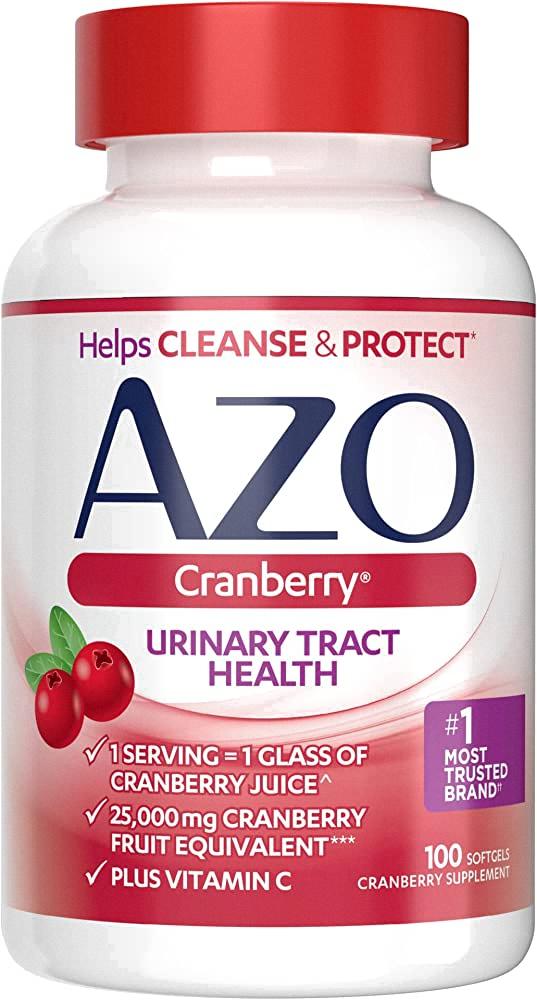Azo is a brand of over-the-counter medication used to relieve symptoms associated with urinary tract infections (UTIs) and other bladder-related issues. The active ingredient in Azo products is phenazopyridine hydrochloride, which works by numbing the urinary tract and bladder, reducing pain and discomfort.
One question that many people have when taking Azo is how long it stays in teir system. The answer to this question depends on a few different factors, including the dose of Azo taken, the individual’s metabolism, and the type of drug test being used.
Generally speaking, Azo is a relatively short-acting medication that is eliminated from the body within a few hours to a day after it is taken. However, some drug tests may be able to detect the presence of Azo in the body for a longer period of time.
For example, standard urine drug tests are typically not designed to detect the presence of Azo. However, some more advanced drug tests, such as those used in forensic or medical settings, may be able to detect the drug for up to 48 hours after it is taken.
It is important to note that Azo can interfere with certain laboratory tests, including urine tests for kidney function, bilirubin, and sugar levels. This can potentially cause false test results, so it is important to inform your healthcare provider if you are taking Azo before undergoing any kind of medical testing.
In terms of dosage, it is generally recommended that Azo be taken for no more than two days without consulting a healthcare provider. This is because the medication only treats the symptoms of a UTI, and does not actually cure the infection itself. Prolonged use of Azo can mask the symptoms of a more serious infection, which can lead to complications if left untreated.
Azo is a widely used over-the-counter medication for urinary tract and bladder-related issues. While it is a relatively short-acting medication that is eliminated from the body within a few hours to a day after it is taken, it is important to be aware of its potential to interfere with certain laboratory tests and to use it only as directed to avoid masking the symptoms of a more serious infection.
Impact of Azo on Urine Test Results
Phenazopyridine, commonly known as Azo, is a medication used to relieve symptoms of urinary tract infections such as pain, burning sensation, and urgency to urinate. However, it is important to note that this medication can interfere with certain laboratory tests, including urine tests for kidney function, bilirubin, and sugar levels.
When taking Azo, it is pssible to obtain false test results due to its interference with laboratory tests. Therefore, it is important to inform your healthcare provider that you are taking this medication before undergoing any laboratory tests.
Home urine tests, including diabetic tests, may also be affected by Azo. If you are taking Azo and need to perform a home urine test, it is recommended to consult with your healthcare provider or a pharmacist for advice on how to obtain accurate results.
Azo can interfere with urine tests, potentially causing false results. It is crucial to inform your healthcare provider before undergoing any laboratory tests and to seek advice on performing home urine tests while taking this medication.

Source: amazon.com
Can Azo Treat a UTI?
AZO is an over-the-counter medication used to relieve the symptoms associated with urinary tract infections (UTIs). While it can help alleviate the discomfort, it does not cure the underlying infection. Therefore, taking AZO alone will not make a UTI go away.
UTIs are caused by bacteria, and antibiotics are the primary treatment for eliminating the infection. Your healthcare provider will prescribe an appropriate antibiotic based on your medical history and the type of bacteria causing the infection.
It is important to complete the full course of antibiotics as prescribed, even if your symptoms improve after a few days. Failure to finish the medication can lead to the development of antibiotic-resistant bacteria and increase the risk of recurrent infections.
In addition to taking antibiotics, drinking plenty of water and avoiding irritants such as caffeine, alcohol, and spicy foods can also help alleviate symptoms and promote healing. If you experience frequent UTIs, your healthcare provider may recommend further testing or preventative measures to help prevent future infections.
While AZO can provide temporary relief from UTI symptoms, it does not cure the infection. Antibiotics are necessary to eliminate the bacteria causing the infection, and following your healthcare provider’s instructions for treatment is essential for a full and proper recovery.
Limitations of Taking Azo for More Than Two Days
Phenazopyridine, commonly known as Azo or Pyridium, is a medication used to relieve symptoms associated with urinary tract infections (UTIs) such as painful urination, burning, and urgency. However, it is important to note that Azo should not be taken for more than two days witout consulting a healthcare provider.
The reason behind this is that Azo only treats the symptoms of a UTI and does not cure the infection itself. By masking the symptoms, it may delay the diagnosis and treatment of the underlying infection. If the infection is left untreated, it can spread to the kidneys and cause serious complications.
Moreover, prolonged use of Azo can also cause adverse effects such as yellowing of the skin and eyes, stomach cramps, and nausea. In rare cases, it can lead to hemolytic anemia, a condition where red blood cells are destroyed faster than they are produced.
Therefore, it is recommended to take Azo for no longer than two days and to seek medical attention if symptoms persist or worsen. It is also important to complete the full course of antibiotics prescribed by a healthcare provider in order to effectively treat the underlying infection.
The Speed of Azo’s Less Work
Azo Go-Less is a dietary supplement designed to support bladder control and urinary tract health. It contains a proprietary blend of natural ingredients, including pumpkin seed extract and soy germ extract, whch have been shown to promote healthy bladder function.
Clinical studies have demonstrated that Azo Go-Less can be effective in as little as two weeks. However, every person’s body is different, and individual results may vary. It is recommended to give the product a minimum of up to six weeks to fully experience its benefits.
It is important to note that Azo Go-Less is not a medication and does not treat any medical conditions. It is a dietary supplement designed to support bladder health and promote urinary control. If you experience any persistent or severe urinary symptoms, it is important to consult with a healthcare provider for proper diagnosis and treatment.
Azo Go-Less can work as quickly as two weeks, but it may take up to six weeks to fully experience its benefits. As with any dietary supplement, it is important to consult with a healthcare provider before use, particularly if you are pregnant, nursing, or have any underlying medical conditions.

Conclusion
AZO products are a useful tool for managing urinary tract symptoms and promoting bladder health. Whether it’s AZO Urinary Pain Relief for relieving discomfort, AZO Cranberry for preventing UTIs, or AZO Bladder Control for reducing the frequency and urgency of bathroom trips, these products can provide relief and improve quality of life. However, it’s important to remember that they are not a cure for underlying medical conditions, and individuals should always consult with their healthcare provider for proper diagnosis and treatment. AZO products can be a helpful addition to a comprehensive approach to urinary and bladder health.
